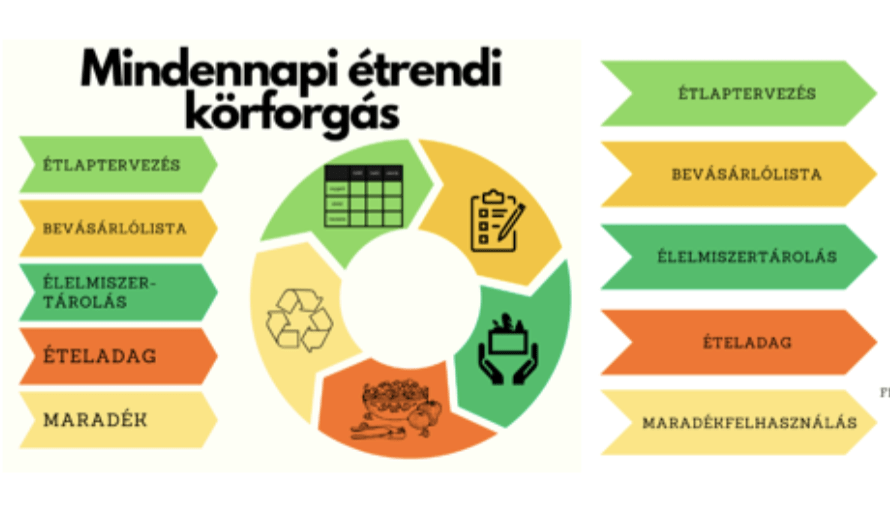What is the ecological footprint of Hungarian nutrition, and how much could it be reduced?
Sustainable nutrition is crucial not only for the protection of our planet, but also for our own health. The latest newsletter of the Hungarian Dietitians’ Association (MDOSZ) draws attention to the fact that our eating decisions have a significant impact on the environment – and through this, on the future of the food supply.
 he ecological footprint of everyday meals is significant. The production, transportation, packaging and consumption of food – and then waste management – all leave a mark on the environment. The meat industry is particularly burdensome, with beef, for example, causing significant carbon dioxide emissions. A plant-based diet, on the other hand, has a significantly lower environmental impact, while also protecting our health.
he ecological footprint of everyday meals is significant. The production, transportation, packaging and consumption of food – and then waste management – all leave a mark on the environment. The meat industry is particularly burdensome, with beef, for example, causing significant carbon dioxide emissions. A plant-based diet, on the other hand, has a significantly lower environmental impact, while also protecting our health.
The SMART PLATE® approach recommended by MDOSZ not only focuses on the correct proportions and nutritional composition, but also applies sustainability aspects. Reducing the proportion of meat and dairy products, prioritizing seasonal and local products, conscious planning and minimizing waste all help reduce the ecological footprint. According to a study, a diet following the SMART PLATE® model leaves a 19% smaller footprint than the current average Hungarian eating habits.
A sustainable diet is not a globally uniform model, but a practice adapted to the geographical, cultural and gastronomic characteristics of a given country. In Hungary, this is complemented by the consumption of seasonal vegetables and fruits, the support of domestic producers and the choice of environmentally friendly packaging.
It is important to distinguish between food waste and food loss: the former means throwing away overbought, unused food, while the latter is the result of spoilage or improper storage. Food that is still fit for human consumption but is thrown away – such as a spoiled yogurt or a whole apple thrown away – is considered avoidable waste, and it depends on individual awareness whether it can be reduced.
MDOSZ has also created a sustainability glossary that organizes international and domestic sustainability concepts, helping both professionals and laypeople to navigate this important but often complicated topic.
Visszajelzés küldése
Oldalsó panelek
Előzmények
Mentve
Related news
Diabetes: the key to prevention is “smart” carbohydrates and fiber – MDOSZ has published a fresh summary
🎧 Hallgasd a cikket: Lejátszás Szünet Folytatás Leállítás Nyelv: Auto…
Read more >Dietitians recommend more conscious protein consumption
🎧 Hallgasd a cikket: Lejátszás Szünet Folytatás Leállítás Nyelv: Auto…
Read more >Related news
II. Green Gastronomy – Marketing Communication Workshop organized by the MMSZ HoReCa and Green Section
🎧 Hallgasd a cikket: Lejátszás Szünet Folytatás Leállítás Nyelv: Auto…
Read more >Retail sales of organic products in Hungary increased by 13.9% – our country is the second fastest growing market in the European Union
🎧 Hallgasd a cikket: Lejátszás Szünet Folytatás Leállítás Nyelv: Auto…
Read more >









